Filter by
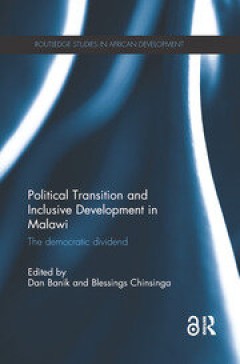
Political Transition and Inclusive Development in Malawi
Malawi is among the few countries in sub-Saharan Africa that has witnessed significant improvements in relation to meeting the Millennium Development Goal (MDG) targets. It exhibits some of the main challenges facing African democracies while they attempt to consolidate the benefits of democratisation. Political Transition and Inclusive Development in Malawi critically analyses opportunities…
- Edition
- -
- ISBN/ISSN
- 9781315683898
- Collation
- -
- Series Title
- -
- Call Number
- 370
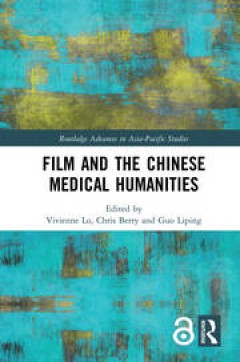
Film and the Chinese Medical Humanities
Film and the Chinese Medical Humanities is the first book to reflect on the power of film in representing medical and health discourse in China in both the past and the present, as well as in shaping its future. Drawing on both feature and documentary films from mainland China, the chapters each engage with the field of medicine through the visual arts. They cover themes such as the history …
- Edition
- -
- ISBN/ISSN
- 9780429507465
- Collation
- -
- Series Title
- -
- Call Number
- 370

Relations between Immigration and Integration Policies in Europe
Written from a pan-European perspective, this book examines the decision-making processes in immigration and integration policies in Europe across decades, focusing on several key moments of Europe’s postwar history. The analysis of factors taken into consideration by states in key moments of immigration policy (re)formulation shows that Europe is moving away from rational, economic argume…
- Edition
- -
- ISBN/ISSN
- 9780429263736
- Collation
- -
- Series Title
- -
- Call Number
- -
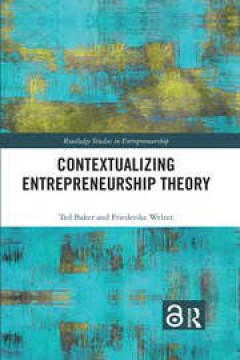
Contextualizing Entrepreneurship Theory
As the breadth and empirical diversity of entrepreneurship research have increased rapidly during the last decade, the quest to find a "one-size-fits-all" general theory of entrepreneurship has given way to a growing appreciation for the importance of contexts. This promises to improve both the practical relevance and the theoretical rigor of research in this field. Entrepreneurship means diffe…
- Edition
- -
- ISBN/ISSN
- -
- Collation
- -
- Series Title
- -
- Call Number
- -

The Structures of the Film Experience by Jean-Pierre Meunier Historical Asse…
For the first time this volume makes Jean-Pierre Meunier’s insightful thoughts on the film experience available for an English-speaking readership. Introduced and commented by specialists in film studies and philosophy, Meunier’s intricate phenomenological descriptions of the spectator’s engagement with fiction films, documentaries and home movies can reach the wide audienc…
- Edition
- -
- ISBN/ISSN
- 9789048537846
- Collation
- -
- Series Title
- -
- Call Number
- -

mHealth in Practice: Mobile Technology for Health Promotion in the Developing…
This book is available as open access through the Bloomsbury Open Access programme and is available on www.bloomsburycollections.com. There has recently been an explosion of interest around the application of mobile communication technologies to support health initiatives in developing countries (mHealth). As a result, there is a need to promote and share rigorous research for better informed p…
- Edition
- Ed. 1
- ISBN/ISSN
- 9781780932811, 9781780932804
- Collation
- 256
- Series Title
- -
- Call Number
- 616.075 MHE m

Sisters in Spirit: Christianity, Affect, and Community Building in East Afric…
In this pioneering study, historian Andreana Prichard presents an intimate history of a single mission organization, the Universities’ Mission to Central Africa (UMCA), told through the rich personal stories of a group of female African lay evangelists. Founded by British Anglican missionaries in the 1860s, the UMCA worked among refugees from the Indian Ocean slave trade on Zanzibar and among…
- Edition
- -
- ISBN/ISSN
- 9781628952926
- Collation
- -
- Series Title
- -
- Call Number
- -
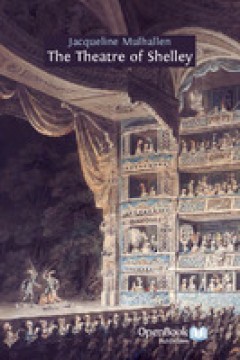
The Theatre of Shelley
This is the first full-length study of Shelley’s plays in performance. It offers a rich, meticulously researched history of Shelley’s role as a playwright and dramatist and a reassessment of his "closet dramas" as performable pieces of theatre. With chapters on each of Shelley’s dramatic works, the book provides a thorough discussion of the poet’s stagecraft, and analyses performances o…
- Edition
- -
- ISBN/ISSN
- -
- Collation
- -
- Series Title
- -
- Call Number
- -
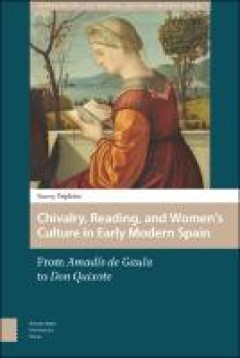
Chivalry, Reading, and Women's Culture in Early Modern Spain: From Amadís de…
The Iberian chivalric romance has long been thought of as an archaic, masculine genre and its popularity as an aberration in European literary history. Chivalry, Reading, and Women’s Culture in Early Modern Spain contests this view, arguing that the surprisingly egalitarian gender politics of Spain’s most famous romance of chivalry has guaranteed it a long afterlife. Amadís de Gaula had a …
- Edition
- Ed. 1
- ISBN/ISSN
- 9789048536641, 9789462985490
- Collation
- 281
- Series Title
- Gendering the Late Medieval and Early Modern World, 3
- Call Number
- 801 TRI c
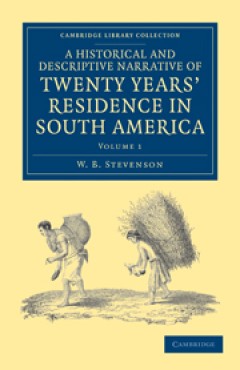
A Historical and Descriptive Narrative of Twenty Years' Residence in South Am…
In 1804 when W. B. Stevenson (fl. 1803–25) arrived on the small island of Mocha, just off the coast of South America, he stepped onto a continent on the brink of mass revolution. Over the next twenty years, he had an extraordinary range of experiences: as a traveller, a Spanish government official, a prisoner, and as secretary to an ex-Royal Navy admiral turned revolutionary. In this three-vo…
- Edition
- -
- ISBN/ISSN
- 9781139060585
- Collation
- -
- Series Title
- -
- Call Number
- -
 Computer Science, Information & General Works
Computer Science, Information & General Works  Philosophy & Psychology
Philosophy & Psychology  Religion
Religion  Social Sciences
Social Sciences  Language
Language  Pure Science
Pure Science  Applied Sciences
Applied Sciences  Art & Recreation
Art & Recreation  Literature
Literature  History & Geography
History & Geography